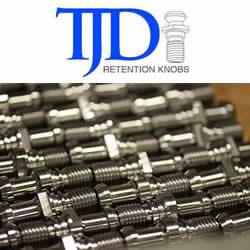Dynamometer Torque Sensor Improves Motor Power Density
To meet international standards, the Ashwoods Electric Motors team constantly benchmark their products on automated dynamometers, which they design in-house. The team wanted a relatively small torque sensor that could fit into their existing dynamometers to ensure the electric motor operate at optimal efficiency.
In-line dynamometer Torque Sensor facilitates prototyping and development stages of electric motor technology by improving their power density
According to the International Energy Agency, electric motors are widely used in industry, infrastructure systems, building technologies, and transportation, contributing to almost half of the global electricity use. The largest proportion of this electricity consumption is attributed to mid-size motors, which are utilised by original equipment manufacturers (OEMs), or as a component for pumps, fans, compressors and auxiliary components (variable speed drives, gears, transmission belts and, brakes), to which they may be attached.
To increase the energy efficiency of electric motor systems by 20-30%, and subsequently reduce CO2 emissions, international agencies have developed energy-efficiency policy measures, such as minimum energy performance standards (MEPS), aimed at potential savings of energy consumption and running costs. They, in turn, lead to more efficient electric motor systems, process and quality improvements, reduced noise levels, and easier maintenance of electric motor systems.
The Client
Dynamometer Torque Sensor for Motor TestingAshwoods Electric Motors was established in 2006. Over the last decade, the company has grown into a leading developer and manufacturer of advanced and innovative electric motors, produced on a large scale. The company works across multiple sectors including materials handling, off highway, automotive and marine and can boast of working with such customers as Morgan, McLaren, Caterpillar and TATA Motors.
In 2017, Ashwoods increased their workforce twofold and secured new premises with a new state-of-art testing facility, equipped with multiple dynamometers where the motors are tested according to heavy-duty pre-set cycles, which are used for validation and performance testing.
The facility also contains a vibration test rig, which is used for prototyping more efficient electric motors, which can be up to a third of the size and weight than traditional motor technologies.
The Challenge
To take electric motor designs from concept through simulation and prototype to production swiftly, the Ashwoods team is constantly benchmarking their products to match international standards on automated dynamometers, which are designed in-house. The team required a relatively small dynamometer torque sensor in a neat package, that could fit into their existing dynamometers, to test the longevity and failure modes of the electric motors.
A torque sensor is a crucial part of the dynamometer, as it allows accurate measurement of motor performance, providing data to easily calculate input/output power and efficiency. Testing electric motors with a wide range of power outputs ensures that they operate at optimal efficiency.
The Solution
Ashwoods Electrics Motors use in-house "dynos" to test and evaluate every aspect of the motor design, from its performance to durability, its structure, and thermal characteristics. As the team continually develops exiting and new motors, its important to provide high accuracy in torque measurement across a wide torque range, without having to switch out torque transducers for different size motors.
Dynamometer Torque Measurement for Electric Motor Torque Testing
Datum Electronics torque sensors have a wide torque measurement range and are highly accurate. Customers have the ability to choose the output types and configure the torque sensor, to suit numerous electric motor testing applications and solutions. The torque sensors are fully non-contact, provide a wide range of outputs and ensure reliable acquisition of torque and rotational speed in real time (with the DUI).
Not only that, Datum M425 in-line rotary torque sensors have neat packaging, that keeps the Ashwoods dynamometer rigs looking smart and tidy within their lab.
The Impact
With consumers awareness regarding the depletion of natural resources on one side, and proactive government incentives to reduce energy consumption and CO2 emissions on the other, the demand for more energy efficient electric motor technology is expected to drive the development of greener technologies.
Datum Electronics torque sensors have facilitated Ashwoods Electrics Motors to development of their motor technology and power density considerably. Power density enables the delivery of maximum power whilst creating the smallest footprint.
To deliver electric motors that offer optimum performance, durability and quality assurance, Ashwoods Electric Motors uses reliable and highly precise equipment to accurately test and breakdown the efficiencies of the entire system. Being at the heart of performance and durability dynamometer test rigs, Datum torque sensors have played a crucial part in the prototyping and development stages helping to constantly improve electric motor products and move the company forward to where they are today.
Featured Product

T.J. Davies' Retention Knobs
Our retention knobs are manufactured above international standards or to machine builder specifications. Retention knobs are manufactured utilizing AMS-6274/AISI-8620 alloy steel drawn in the United States. Threads are single-pointed on our lathes while manufacturing all other retention knob features to ensure high concentricity. Our process ensures that our threads are balanced (lead in/lead out at 180 degrees.) Each retention knob is carburized (hardened) to 58-62HRC, and case depth is .020-.030. Core hardness 40HRC. Each retention knob is coated utilizing a hot black oxide coating to military specifications. Our retention knobs are 100% covered in black oxide to prevent rust. All retention knob surfaces (not just mating surfaces) have a precision finish of 32 RMA micro or better: ISO grade 6N. Each retention knob is magnetic particle tested and tested at 2.5 times the pulling force of the drawbar. Certifications are maintained for each step in the manufacturing process for traceability.
